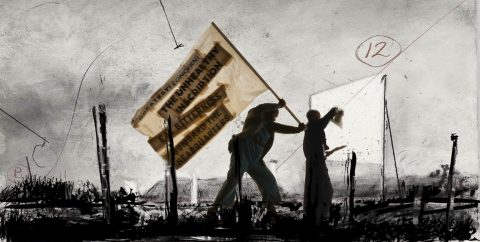O my body, make of me always a man who questions! —Frantz Fanon, Black Skin, White Masks (1952)1 Pathogenic Subjectivity Commentary on Frantz Fanon’s oeuvre tends to consider The Wretched of the Earth, published in 1961, as the work that breaks with the Martinican thinker’s post-slavery analysis, which was developed nine years earlier in his first book, Black Skin, White Masks. Some say that Fanon’s point of view radicalized during this period: with an imminently independent Algeria, Fanon abandoned the socio-psychoanalytic point of view which he had elaborated in order to theorize post-slavery French society. If The Wretched of the Earth privileges a political style,…
Tag: Jean-Paul Sartre
Jean-Luc Godard’s “Militant Filmmaking”; by Irmgard Emmelhainz
Irmgard Emmelhainz | Between Objective Engagement and Engaged Cinema: Jean-Luc Godard’s “Militant Filmmaking” (1967–1974) It is often argued that between 1967 and 1974 Godard operated under a misguided assessment of the effervescence of the social and political situation and produced the equivalent of “terrorism” in filmmaking. He did this, as the argument goes, by both subverting the formal operations of narrative film and by being biased toward an ideological political engagement.1 Here, I explore the idea that Godard’s films of this period are more than partisan political statements or anti-narrative formal experimentations. The filmmaker’s response to the intense political climate that…


